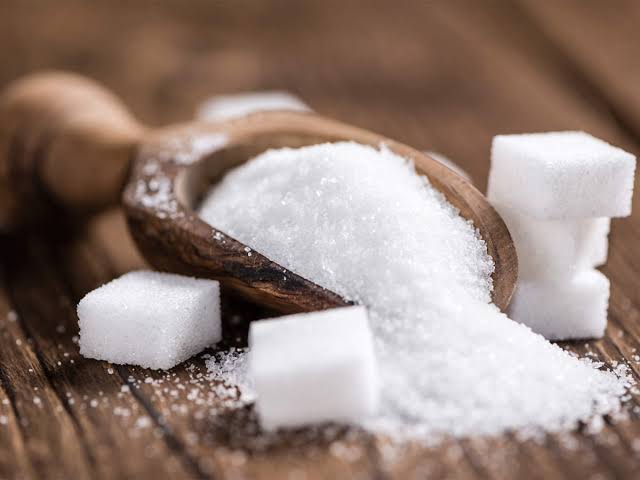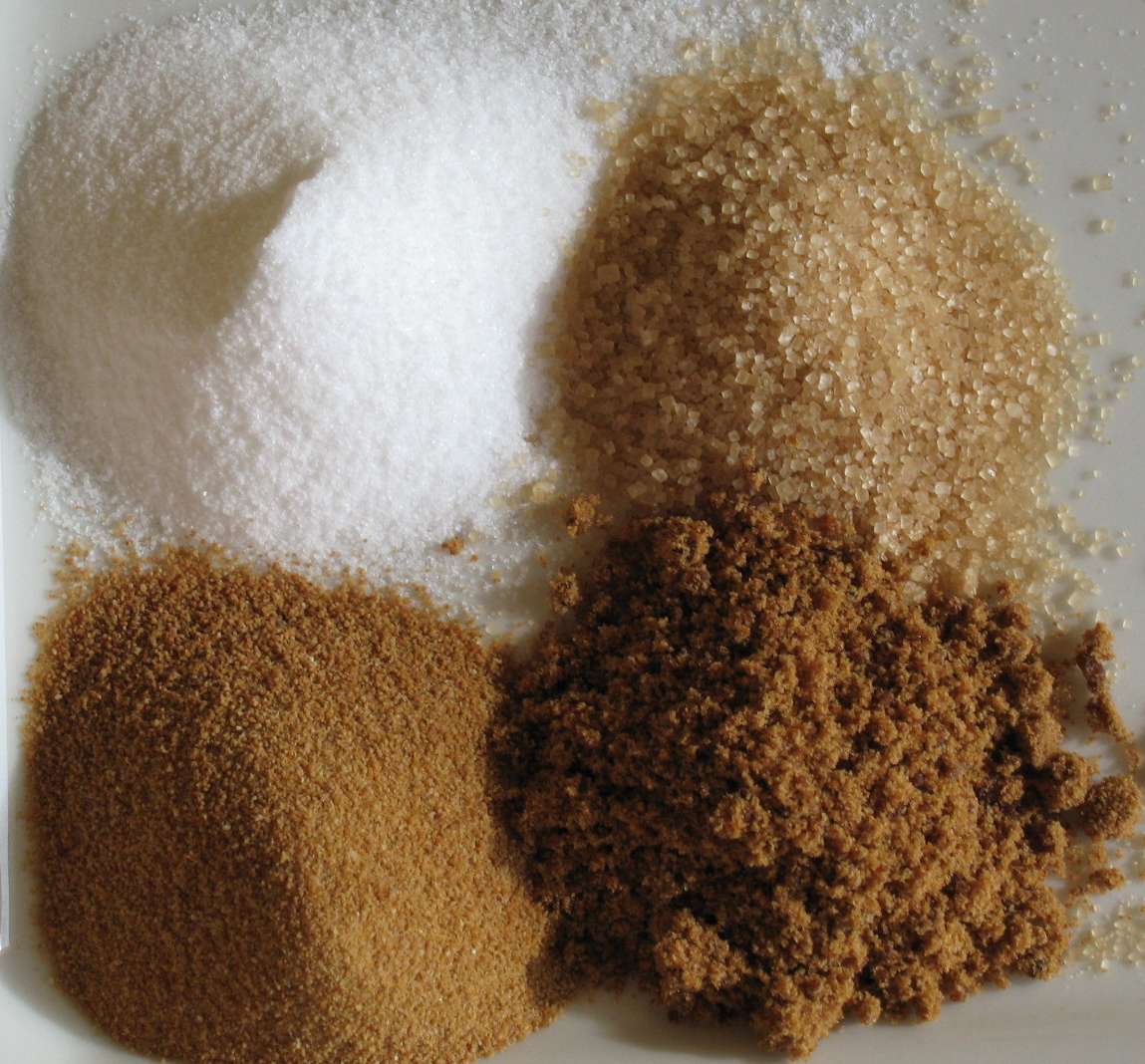
Sugar is the generic name for sweet-tasting, soluble carbohydrates, many of which are used in food. It is a type of carbohydrate that tastes sweet. It is a quick and easy fuel for the body to use. Simple sugars or monosaccharides include glucose, fructose, and galactose. Compound sugars or disaccharides are molecules composed of two monosaccharides joined by a glycosidic bond. Its common examples are sucrose (glucose + fructose), lactose (glucose + galactose), and maltose (two molecules of glucose). In our body, compound sugars are hydrolyzed into simple sugars. Table sugar, granulated sugar or regular sugar refers to sucrose, a disaccharide composed of glucose and fructose.
Here are the different types of sugar:
- Glucose – it is also known as dextrose. This occurs naturally in plants and fruits and is a byproduct of photosynthesis. It is a simple sugar that is the main source of energy.
- Fructose – this is a fruit sugar occurring naturally from a fruit which can also be found in cane sugar and honey.
- Sucrose – it is a combination of fructose and glucose molecule. This is also known as “table sugar”.
- Maltose – this occurs when two glucose molecules combine and are also used in making beer.
- Lactose – a type of sugar that is found on milk, composed of glucose and galactose.
“All sugars are carbohydrates, but not all carbohydrates are sugars”. Most carbohydrates like starch are broken into simple sugars during digestion. But some of them like fiber is not

What are the claims against sugar?
All types of sugar are bad
Experts ideally want us to eat less “added sugar”. That’s the added sugar in foods to make them taste sweeter like the brown sugar in chocolate chip cookies or the chocolate syrup you drizzle on your yogurt.
An added sugar is different from sugar that naturally occurs in some foods like milk or fruit. Natural sugar is packed with vitamins, minerals, and nutrients that help offset some of the negative aspects of the sugar content like a fruit that has fiber, causing our body to absorb sugar at a slower phase.
Natural sugars or minimally processed are better for your body
Minimally processed sweeteners like honey and maple syrup contain more nutrients compared to the highly processed, like sugar. But the amount of nutrients is relatively small and won’t have a measurable impact on someone’s health.
You should eliminate sugar on your diet
You don’t need to entirely cut out sugar on your diet. According to experts, there is a space for some sugar in a healthy diet. Based on dietary guidelines, an adult that eats 2,000 calories per day, a woman should have less than 6 teaspoons of sugar while men should have less than 9 teaspoons per day.
It is impossible to avoid sugar
If you are overdoing it, cutting back on sugar will do you good. Instead of totally avoiding your favorite sweets, you can eat into smaller portions per day. Also, pay attention to the nutrition labels of the foods you buy and look for options that will help you stay within your daily sugar limit.
Sugar will make you sick
Eating sugar in moderation will not shave off years of your life. According to a study, added sugar consumption was not linked to an increased risk of death. Sugar intake in moderation is not harmful to our health while having too much sugar intake may increase the chances of gaining weight.
Sugar is a drug and an addiction
Eating sugar stimulates pathways in the brain that are associated with feelings and pleasure of reward. The overlapping paths may produce effects similar to substance use, but it doesn’t make someone addicted like drugs.
Sugar-free replacements are good alternatives
According to a study, the consumption of sweeteners is linked to weight gain instead of weight loss. It also increases the risk of high blood pressure, type 2 diabetes, metabolic syndrome, heart attacks, and stroke.
Going on a low or no sugar diet will help you lose weight
A limit on sugar intake will help on losing weight but overall calorie intake should be put into consideration. A low or no sugar diet doesn’t guarantee weight loss. If you choose to munch on a 700-calorie ham and egg sandwich for breakfast instead of a 300-calorie bowl of cereal won’t make you fit your skinny jeans, even if the sandwich you had for breakfast has less sugar.
The real harm to sugar is it has no vitamins, no mineral, and no antioxidants. Overall weight management comes down to regular calorie consumption management and sugar has lots of calories. Minimizing sugar intake means less consumption of calories without feeling miserable.

Is sugar from fruits bad for your health?
Fruits are packed with fiber and water and it is not purely composed of fructose. It also takes someone a decent effort to chew a piece of fruit, thus making the absorption of sugar from the fruit slow down. According to Dr. Ludwig of Harvard Medical School, it is difficult to consume enough fructose to be harmful by eating whole fruit. Eating fruit is perfectly fine.
Drinking a fruit juice is not much different from drinking a soda since most of the fruit nutrients have already been removed during the juicing process and what was left on the juice itself is Sugar Water. This makes drinking fruit juice should be done in moderation.
When it comes to sugar, we need to take note that:
- Each of us is unique. What works for you might not work for other people. People can do and function in different ways, there is no one size fits all when it comes to nutrition.
- Sugar is not evil. There is nothing specific to sugar molecules that makes them dangerous. It should only be consumed in moderation.
- Sugar is
nutrient deficient. Table sugar can only give you calories. If you are
having a hard time losing weight, controlling your added sugar intake will help
you manage your weight better.
- Fruit and starchy vegetables can be healthy. Sugar and starchy foods are fine as long as they come from whole foods. Just keep an eye on the added sugar on your meals.
- The real danger of sugar can come when it’s mixed with fat and salt. The term is “hyperpalatable food” and it is specifically made to hijack your brain’s reward system resulting in food cravings.
You might also want to read: Diet Soda myth busted: Is it a yes or no to a healthier lifestyle

